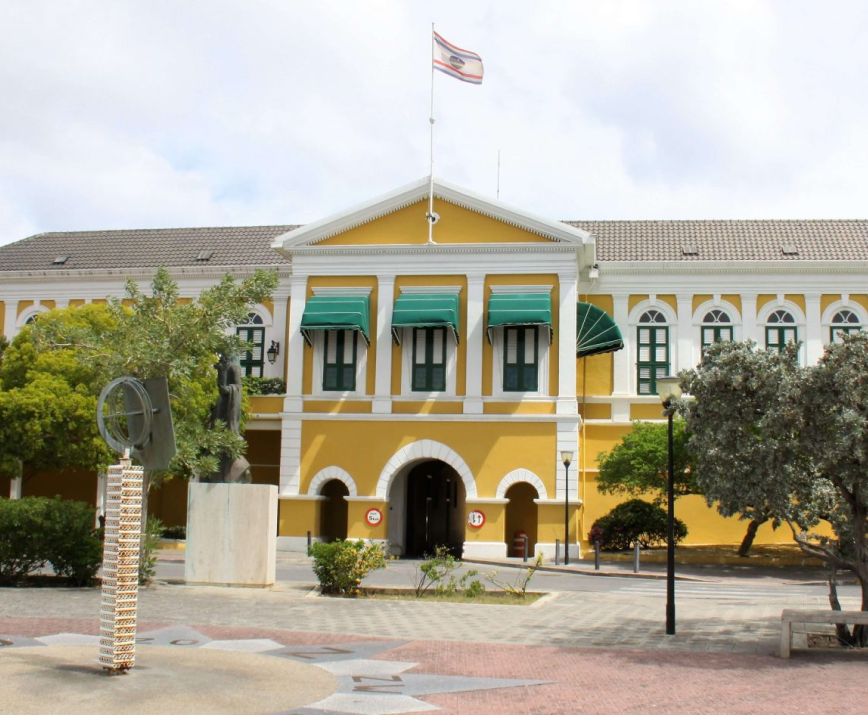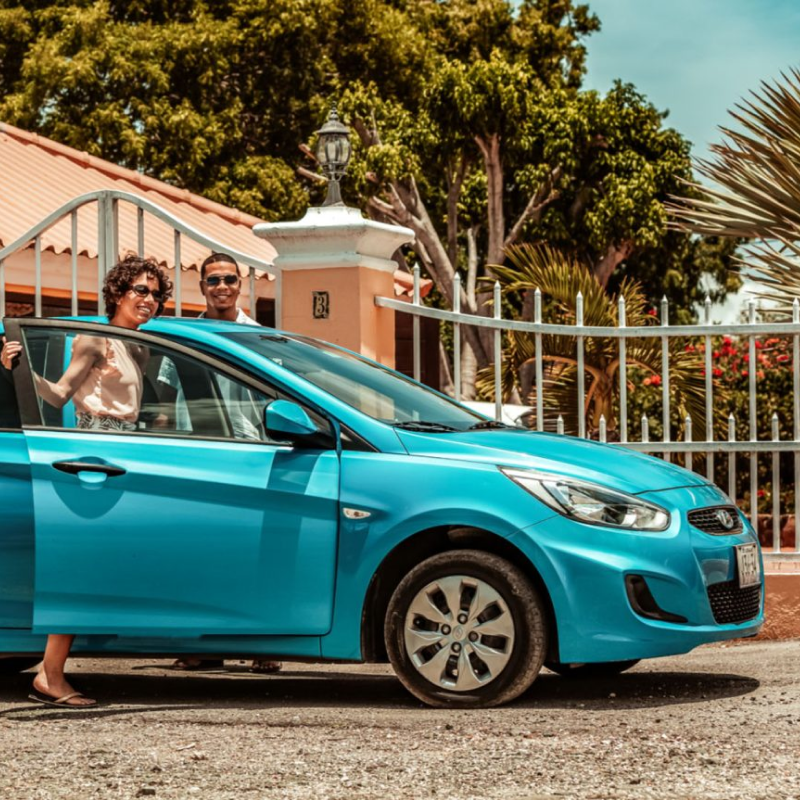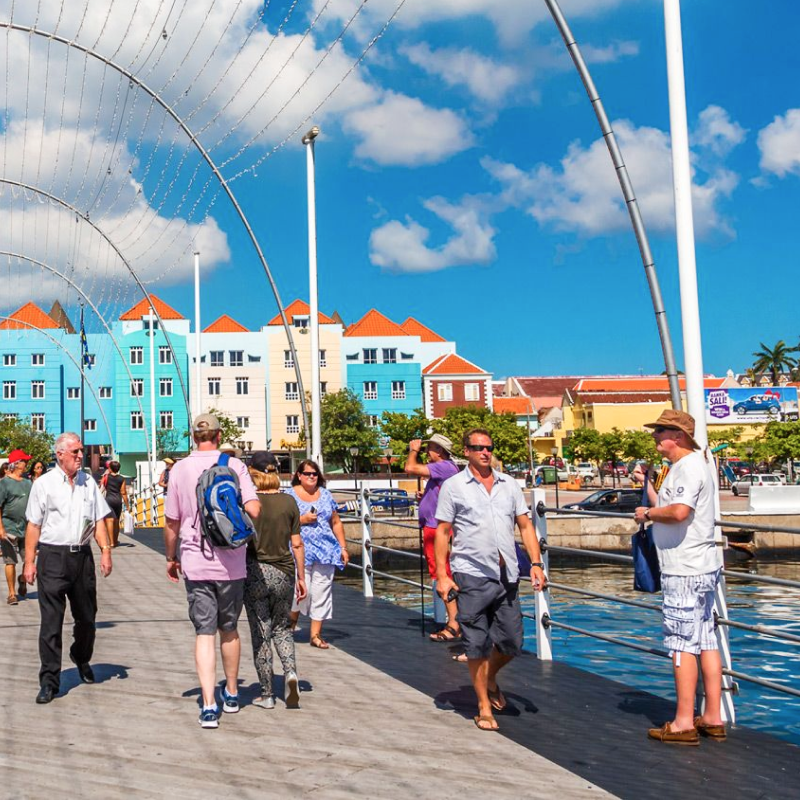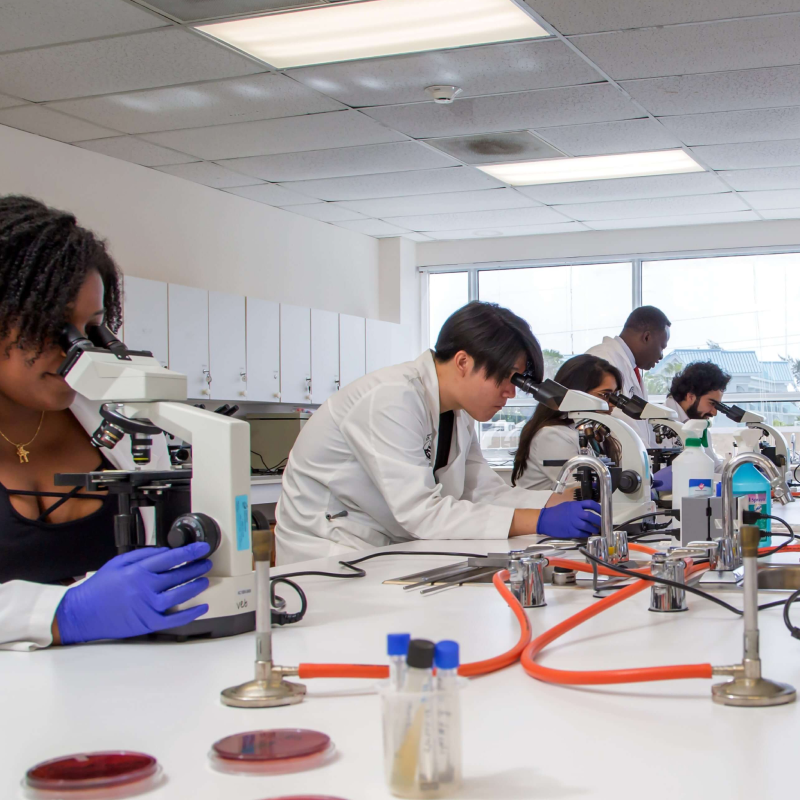About Curaçao
Curaçao, a constituent country of the Kingdom of the Netherlands, offers a complex blend of Caribbean vibrancy and European infrastructure.
Government
Curaçao, as of October 10, 2010, is an autonomous country within the Kingdom of the Netherlands. Locals have Dutch nationality and carry European Union passports. The form of government is a parliamentary democracy, based on underlying premises such as freedom of association, the right to form political parties, freedom of the press, and freedom of speech.
The Central Government’s jurisdiction covers mostly state affairs (legislation) and includes police, communications, taxation, public health, education, economic control, establishment of enterprises, labor legislation, money, and banking.

Climate
Located in the tropics, just 12° north of the Equator, Curaçao has a warm, sunny climate year round. The average temperature is about 27°C (in the mid-80s°F). Cooling trade winds blow constantly from the east, picking up in the spring months. The rainy season, which is between October and February, is usually marked by short, occasional showers, mostly at night, and continued sunny weather during the day. Total annual rainfall averages only 570 mm (22 inches).

Driving in Curaçao
Curaçao has a public transportation system (buses), but some of our students decide to purchase (or rent) cars, motorcycles, or bicycles in order to get to and from the university. Given that Curaçao is 275.8 sq. km (171.4 sq. miles) in area, having a personal means of transportation, although not necessary, may allow you to be better equipped to explore the island.
To drive in Curaçao, a valid driver’s license is necessary. An international driver’s license is not required. Driving takes place on the right-hand side of the road. At intersections and traffic circles, yield to traffic coming from your right unless signs indicate otherwise. At all T-crossings, through-going traffic has priority. The speed limit is 45 km/hour in town and residential areas, and 60-80 km/hour outside the city and on the four-lane Ring Road. Most gas stations are full-service; a few are open 24 hours.
Curaçao Road Services
Tel. +(5999) 747-1333 or 199.
Roadside Assistance 24/7 Curaçao
Tel. +(5999) 9-24-7

01
Public Transportation
Curaçao is one of the best and safest islands in the Caribbean according to Business Insider, a popular U.S.-based magazine. This fact allows for a harmonious and peaceful living environment. This is thanks to the combined efforts of the Curaçao Police Department, Politur (a branch of the police force dedicated to the protection of tourists), the Curaçao Fire Department, and Curaçao’s Emergency Services. However, use common sense and take all standard safety precautions.
02
Safety
You can easily move about the island by bus. Curaçao offers two kinds of public transportation: the large buses, which are called ‘Konvooi,’ go for longer distances, and on most urban routes you will find vans (max. 9 passengers) called ‘bus’ (they have BUS on their registration plates). The bus routes cover most parts of the island and can bring you to beaches, shopping areas, and parks.
03
Water
04
Currency
Curaçao’s currency is the Antillean guilder (also called the florin), which is abbreviated as Nafl, but U.S. dollars circulate freely, so it is possible to get by using only American dollars or credit cards. Euros are accepted at some hotels and restaurants, but unlike U.S. dollars, they do not circulate freely. Visit www.centralbank.an for more information on current exchange rates. Major credit cards are accepted almost everywhere on the island. ATM machines can be found all over the island at major population centers and at the airport. To recognize an ATM machine, look for the signs “Bankomatiko” or “Geldautomaat.” Most ATMs offer the option to withdraw in local
05
Communication
Curaçao’s international code is +5999; there are no internal area codes. International roaming is available in Curaçao, so you will be able to make and receive calls outside your home coverage area.
Public Holidays in Curaçao
SMU recognizes all local national holidays.
- New Year’s Day (January 1st)
- Carnival Day (Dates Vary)
- Good Friday (Dates Vary)
- Easter (Dates Vary)
- King’s Day (April 27th)
- Labor Day (May 1st)
- Ascension Day (Dates Vary)
- Flag Day (July 2nd)
- Curaçao Day (October 10th)
- Christmas Day (December 25th)
- Second Day of Christmas (December 26th)

Activities
